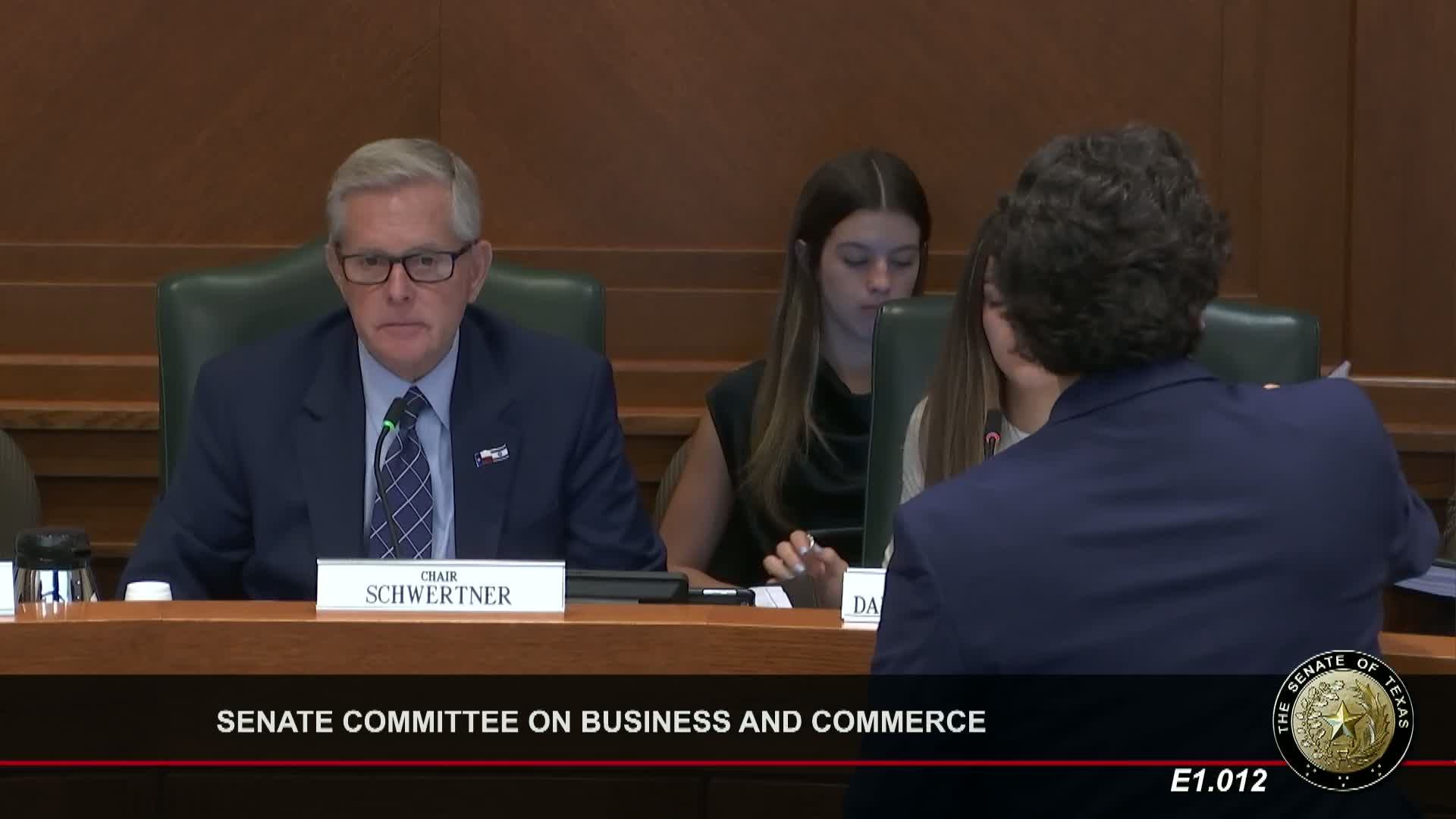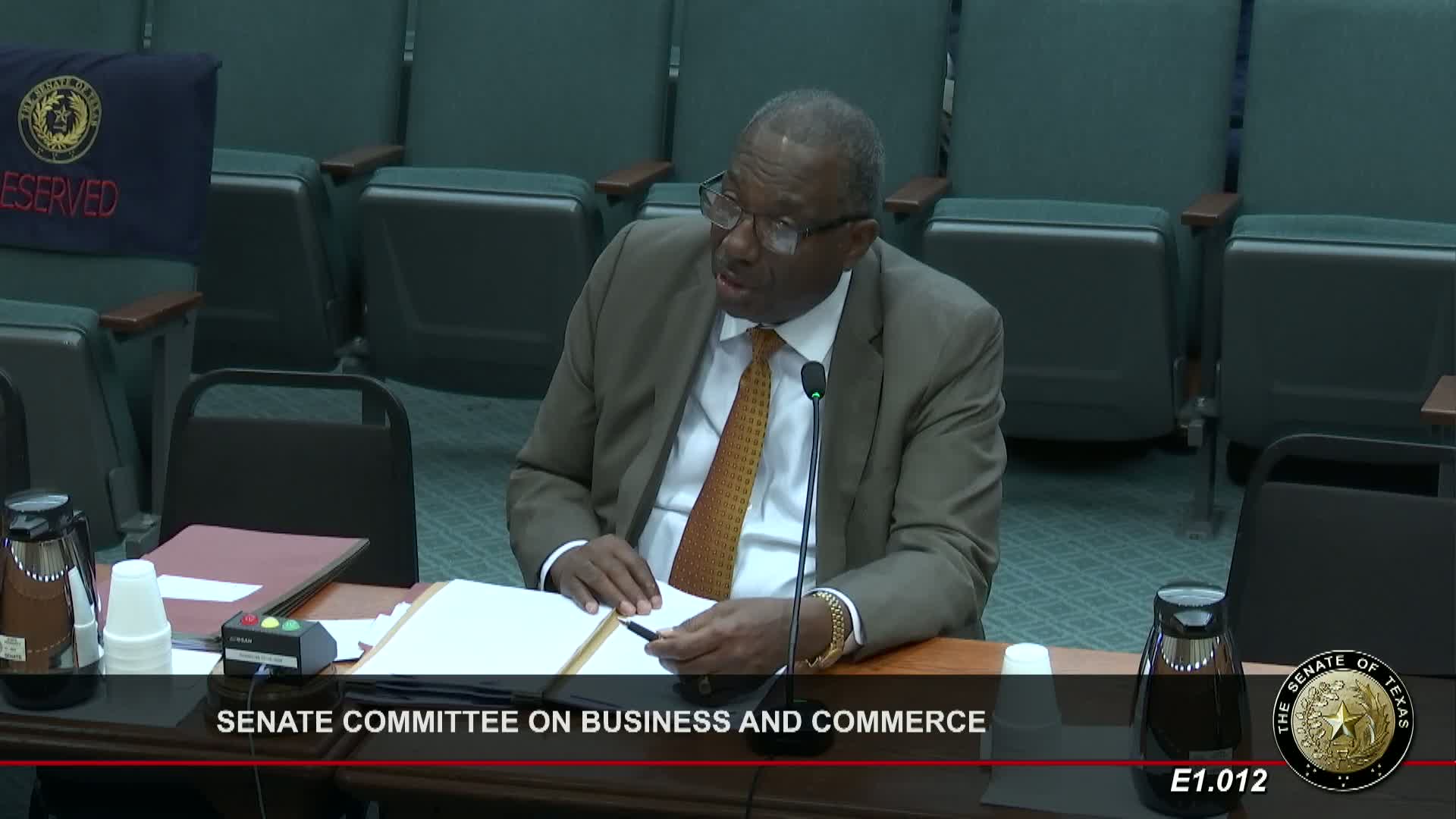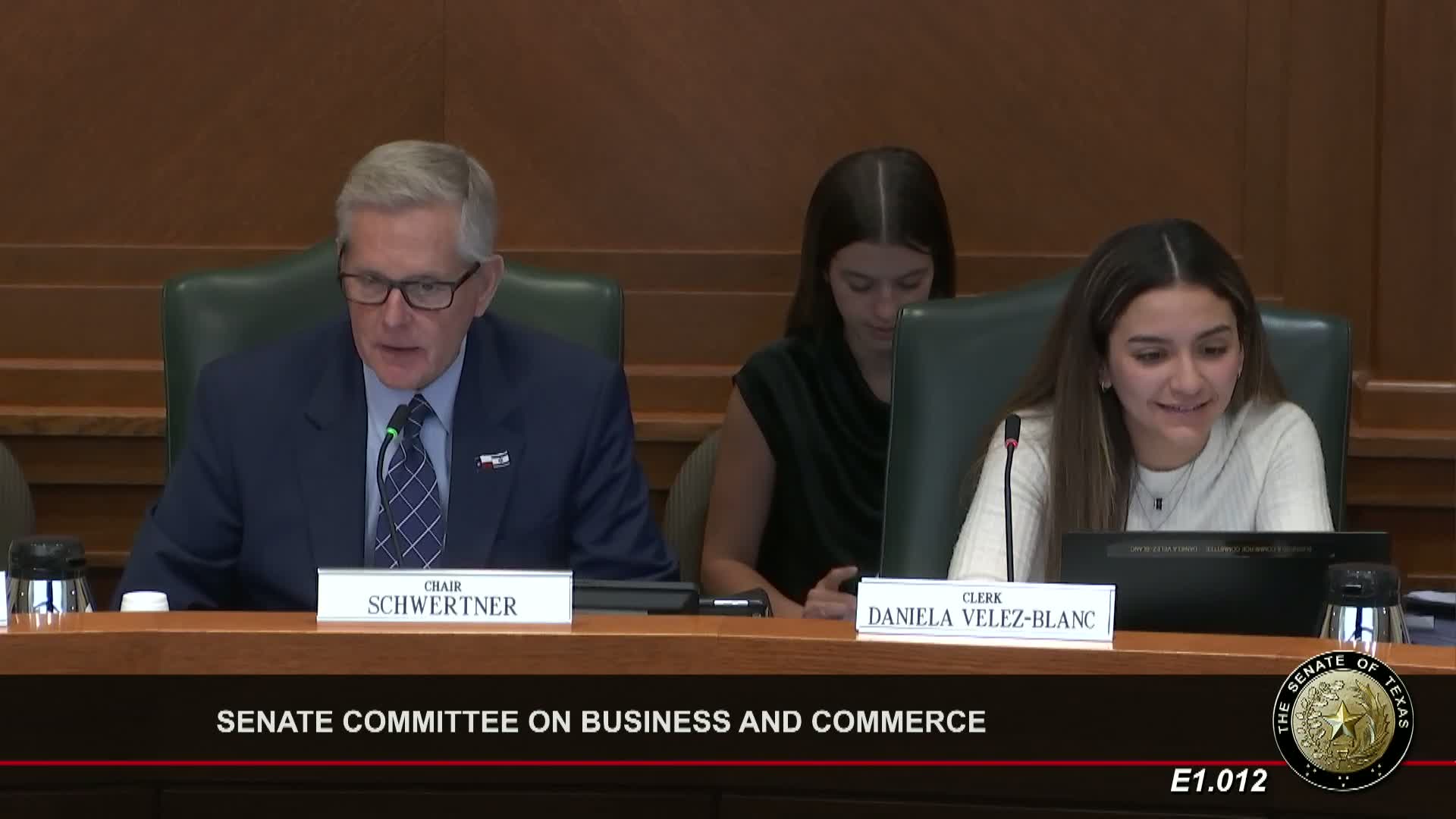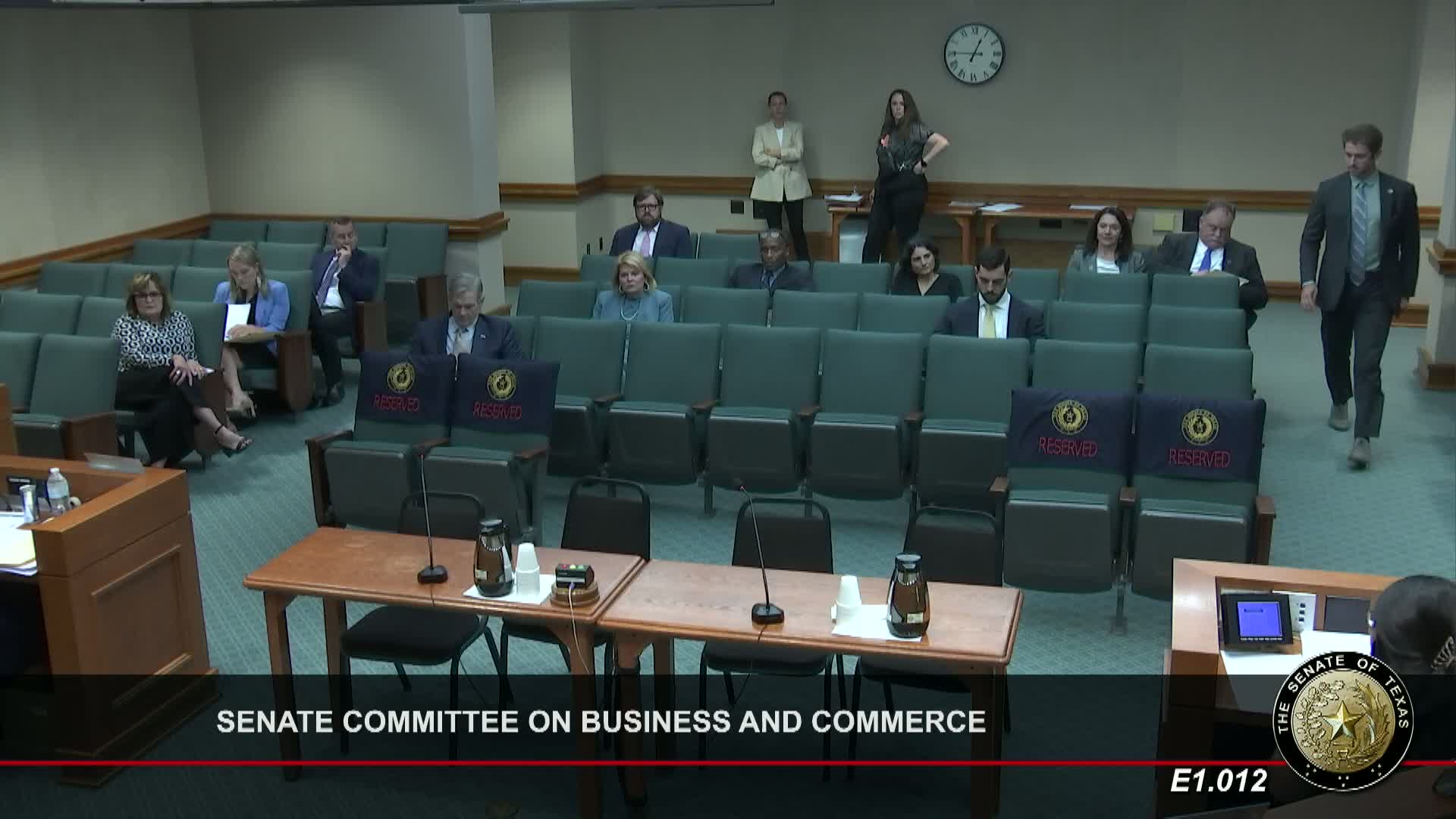Article not found
This article is no longer available. But don't worry—we've gathered other articles that discuss the same topic.

Committee considers expanding confidentiality protections for court staff and related officials

Senate bill seeks to clarify legislators’ access to confidential agency information

Senate hears debate over bill to bar dealers from forcing dealership financing

